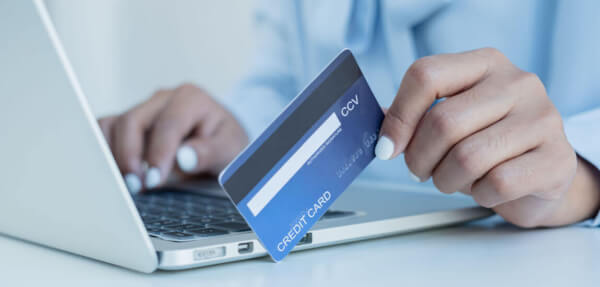Best online banks in France for micro-businesses: complete comparison
Comparison of the best online banks for micro-businesses (sole traders). Discover the rates and offers to make the right choice.

What are the differences between a business bank account and a personal bank account in France? Are you legally required to open a business account? When must you open an account dedicated to your professional activity? And in which cases can you still use a personal account? We’ll explain everything clearly in this guide.
With Wise, you can open a Business account (€50) — required for EURL, SARL, SASU, or SAS — or an account dedicated to your professional activity (mandatory for freelancers whose turnover exceeds €10,000 over two consecutive years) by opening a free multi-currency account (no monthly fees). This payment solution could be a great alternative to traditional banks in terms of cost, efficiency, and speed.
That depends on your legal status.
You must have an account dedicated to your professional activity — meaning either a business account or a personal account used exclusively for business — if:
Or
Here’s a quick summary of which bank account type applies depending on your situation:¹
A business account is mandatory for companies such as EURL, SARL, SASU, and SAS. It is required to deposit share capital before the company’s registration.¹
Note: This also applies to sole proprietorships and auto-entrepreneurs.
If your turnover exceeds €10,000 over two consecutive years, you are required to open an account dedicated to your professional activity. This can be a business account or a personal account used solely for business income and expenses.¹
If your turnover is below €10,000 for two consecutive years, opening a separate account for your professional activity is optional.
In this case, you may use your personal current account to receive payments from your clients.
| Business account | Personal bank account | Account dedicated to your professional activity |
|---|---|---|
| Account for companies | Account for individuals | Personal or business account |
| For business expenses only | For private and/or business use (if turnover < €10,000 over 2 years) | For business use only |
| Account Type | Self-employed, micro-enterprises, or sole proprietorships (commercial, artisanal, liberal, or agricultural activities) | Companies (EURL, SARL, SAS, SASU, etc.) |
|---|---|---|
| Business account | Optional | Mandatory |
| Personal account | Allowed if turnover < €10,000 over 2 years | Not allowed |
| Account dedicated to professional activity | Mandatory if turnover > €10,000 over 2 years | Not allowed |
If you are setting up a company, you will need a business account before registering it. The share capital must be deposited into this account.
Required documents:¹
To open a business account as a micro-enterprise, auto-entrepreneur, or sole proprietorship conducting commercial, artisanal, liberal, or agricultural activities, you must provide:²
Open your Wise Business account
No. Auto-entrepreneurs are not required to open a business account. However, they must have an account dedicated to their professional activity — either personal or business.¹
A personal account is a standard bank account used to receive income (such as a salary) and manage private expenses.
Auto-entrepreneurs, micro-enterprises, and sole proprietors may also open a personal account dedicated exclusively to their business activities.
A business account is a bank account used by companies to manage their business income and expenses. It is required for certain legal statuses (EURL, SARL, SAS, etc.) and optional for others.
Yes, a bank can refuse to open a business or personal account.
However, in France, you benefit from the right to an account. If your bank refuses, the Banque de France can designate a banking institution to open an account for you.¹
| 💡 You can get 8+ currency account numbers with Wise. |
|---|
Sources:
Last verified on October 12, 2025
This article is a translation of the original article published in French and was translated within 365 days of publication. While the content has been translated for accessibility, the data and sources referenced have not been updated since the original publication date.
*Please see terms of use and product availability for your region or visit Wise fees and pricing for the most up to date pricing and fee information.
This publication is provided for general information purposes and does not constitute legal, tax or other professional advice from Wise Payments Limited or its subsidiaries and its affiliates, and it is not intended as a substitute for obtaining advice from a financial advisor or any other professional.
We make no representations, warranties or guarantees, whether expressed or implied, that the content in the publication is accurate, complete or up to date.

Comparison of the best online banks for micro-businesses (sole traders). Discover the rates and offers to make the right choice.

Discover everything about offshore accounts: legality, tax havens, reporting obligations, and recommended countries. Is it an opportunity worth seizing?

Are you a self-employed individual or the manager of a very small or small business? Pricing, features… Here are our tips for choosing the right online bank!

Discover the legality, advantages and disadvantages of opening multiple current accounts in the same bank.

Discover our comparison of N26 Business and Revolut Business. Analysis of rates, features, and advice on choosing the best option.

Stripe and Mollie are solutions available on the web or via their mobile app that can be integrated into your site